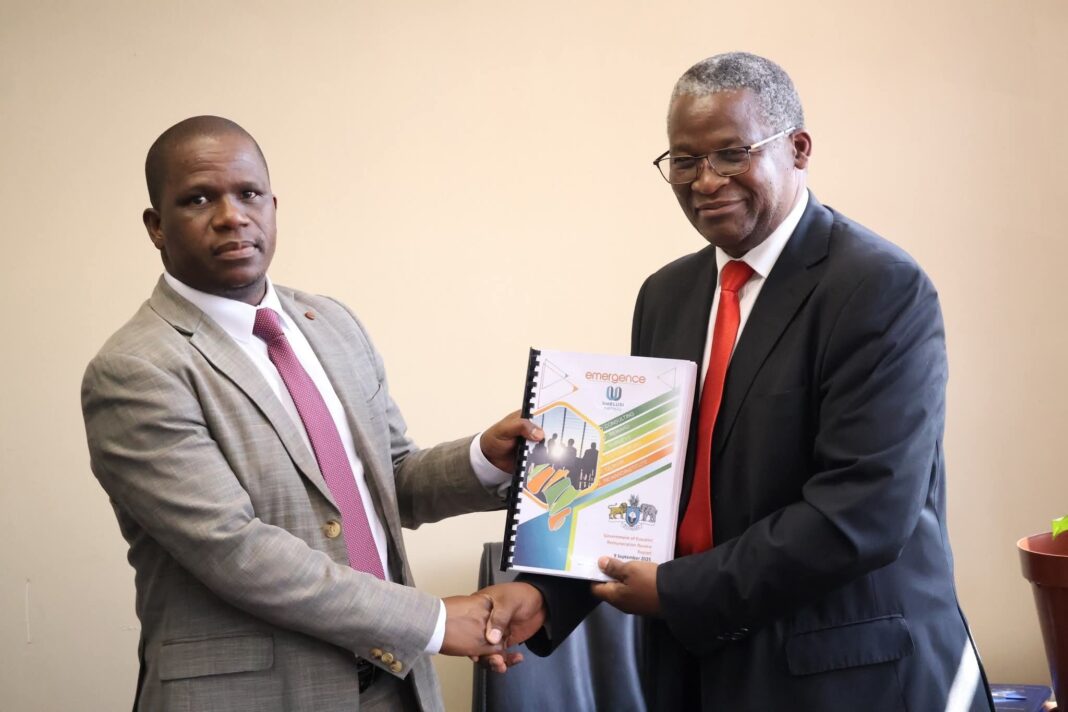A wave of confusion is reportedly sweeping through the ministry of public service after both the Royal Eswatini Police Service (REPS) and His Majesty’s Correctional Services (HMCS) allegedly rejected the 1% salary increment recommended by the consultant for junior officers.
The confusion has been compounded by the fact that government, through the treasury department, has not yet started running salaries for all civil servants pending the finalisation of the negotiations, which some fear could lead to another delay in salary payments even this month. However, our sources at the treasury department have indicated that the staff has already been advised to report for duty tomorrow with the aim to start running the salaries for prompt payment.
“Treasury should have started processing the payments today (yesterday) as last month, the acting government spokesperson said the system cannot process salaries separately, but they all have to be run at the same time. Security officers are already hinting that other civil servants will have to wait for them just as they also waited last month,” said a source.
Deep into last night, the ministry’s negotiation team led by Principal Secretary (PS) Mthunzi Shabangu was reportedly still locked in negotiations with the junior officers and top brass from HMCS with government now offering a 5% increment to the junior officers. This reportedly followed another meeting with the same team from the REPS the previous day.
Sources close to the negotiations revealed that for the past two days, the ministry has been locked in intense meetings with executives and staff associations from the two security agencies. The aim was to convince them to accept the proposed adjustments so that the ministry of public service could satrt processing their salaries. However, what the ministry officials reportedly anticipated would be a straightforward process quickly unravelled, as officers stood their ground and dismissed the offer.
According to insiders, the meetings became tense as representatives accused the ministry of being ‘reckless’ in its approach to the salary review process. Junior officers, in particular, are said to have expressed deep dissatisfaction with what they termed an ‘insulting’ increment that translates to only E100, and that is before tax.
On Thursday, the ministry of public service officials are believed to have held a high-level session with REPS members to clarify how the ministry intended to implement the reviewed salary structure. It was during this session that officers allegedly challenged the ministry, questioning the logic and fairness behind awarding junior officers such a minimal increase. The frustration among junior officers was reportedly compounded by their awareness of earlier draft recommendations by the consultant. According to the source, the initial proposal had offered senior officers very minimal increments—figures that were rejected by executives from both security services.
ALSO READ: Former MP Mthandeni ends 15-year marriage
However, a sudden shift in the consultant’s stance appears to have ignited further controversy. The latest proposal, insiders claim, now allocates significant increases to senior officers, with percentages reportedly ranging from 18% to 37%. This abrupt change is said to have fuelled suspicions among junior ranks, who feel the revised structure disproportionately favours top officials at their expense. The stand-off has left the ministry of public service in a tight corner, as the rejection of the offer delays the processing of salaries while tensions continue to rise within the security sector.
By yesterday, uncertainty still clouded the situation, with no clear indication of whether a compromise would be reached. As of now, the ministry has not issued an official statement addressing the alleged pushback, leaving many officers anxious about the next steps in the salary review process.
Officers from the three security forces say they were persuaded to accept government’s 3% “Phase II” adjustment on the understanding that the forthcoming salary review would address all their existing gaps. They claim they were assured that the review would comprehensively cater for their financial challenges. However, they now express shock that, at the moment of fulfilling this promise, government appears to be shifting its stance. This has caused frustration especially among junior officers, who earn significantly less than their superiors and had hoped the review would finally bring meaningful relief.










